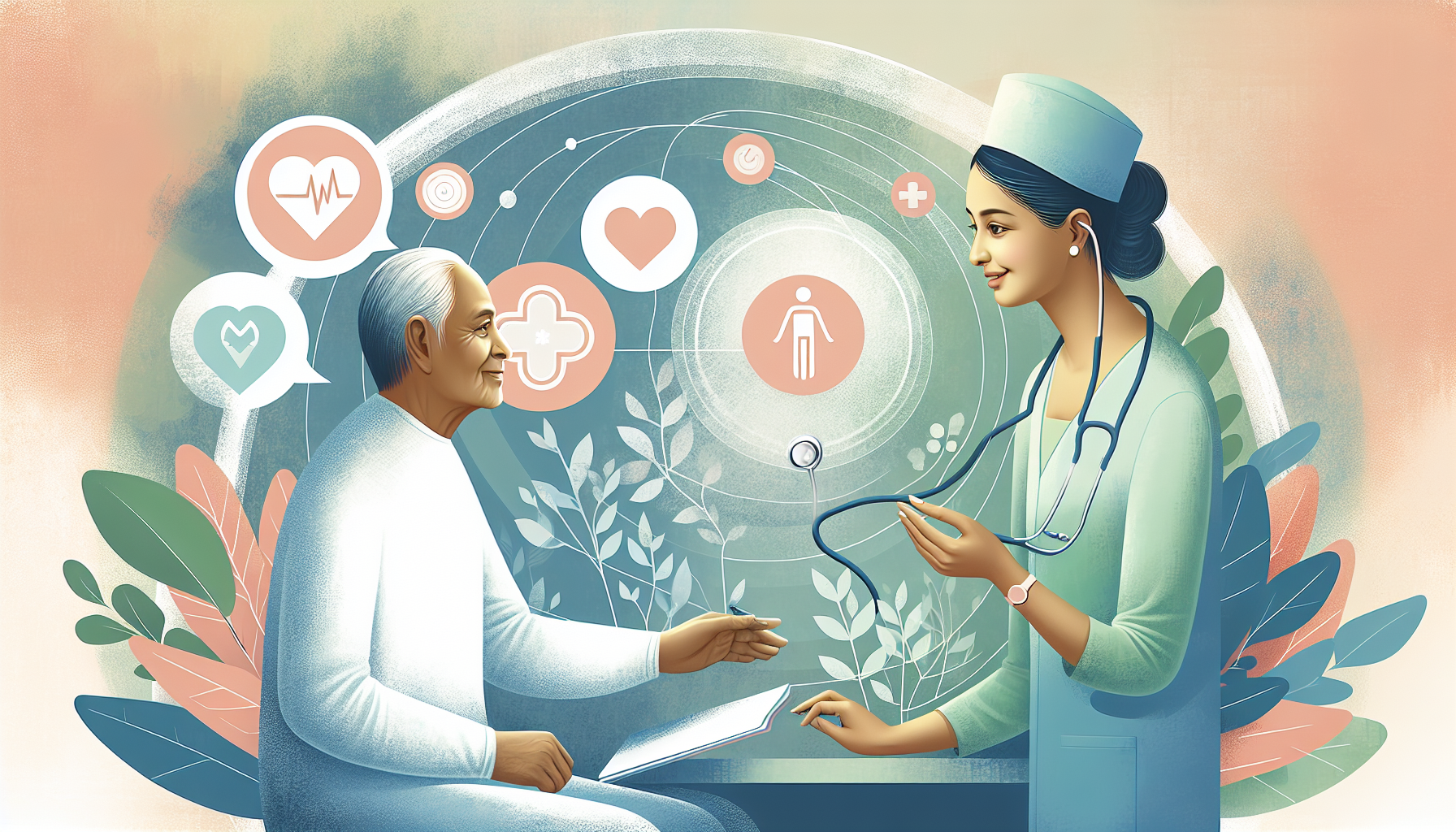Navigating healthcare accessibility can feel like trying to solve a complex puzzle – and trust me, you’re not alone in this struggle. Many people face barriers that make it hard to access the care they need, whether it’s lack of information, communication challenges, or simply understanding their rights as patients.
But don’t worry! If you stick around, I’ll share some fantastic ChatGPT prompts that can help you enhance healthcare accessibility in your community or personal life. These tools can make the process smoother and even empower you or your organization to take action.
From assessing patient needs to advocating for policy changes, this exploration will cover a variety of ways to use ChatGPT for improving healthcare accessibility. Let’s dive in and make healthcare work for everyone!
Key Takeaways
- Healthcare accessibility is a common challenge, often caused by various barriers like transportation, costs, and communication issues.
- Using AI tools like ChatGPT can help identify problems and create strategies to enhance patient access to healthcare.
- Prompts can assist in assessing patient needs, generating educational resources, improving communication, and advocating for policy changes.
- Effective outreach strategies are essential for reaching underserved communities and increasing awareness of healthcare services.
- Innovative ideas for telehealth can improve user experience, patient engagement, and overall satisfaction.

Essential ChatGPT Prompts for Enhancing Healthcare Accessibility
Healthcare accessibility is a pressing challenge, and leveraging AI tools like ChatGPT can help bridge gaps in patient care.
By using targeted prompts, healthcare professionals can generate insights and solutions that make healthcare more inclusive.
Here are some prompts to get you started:
- “List five strategies to improve healthcare accessibility for underserved populations.”
- “Generate a plan to engage patients with disabilities using digital health tools.”
- “How can AI assist in identifying barriers to healthcare access in rural communities?”
- “What are some innovative solutions to enhance patient engagement in telehealth services?”
Understanding Healthcare Accessibility Challenges
Healthcare accessibility challenges often stem from a variety of barriers, including socioeconomic factors and systemic issues.
These obstacles can result in disparities in care that narrow access for vulnerable populations.
Understanding patient needs and environmental factors is key to addressing these issues effectively.
Some significant challenges include:
- Lack of transportation to medical facilities
- High costs of healthcare and insurance
- Language and communication barriers
- Socioeconomic status affecting healthcare choices
With targeted prompts, ChatGPT can help analyze these barriers more clearly.
Try the following prompts:
- “Describe the primary barriers to healthcare access in urban areas.”
- “What social determinants affect healthcare access for LGBTQ+ communities?”
- “Analyze the impact of socioeconomic status on healthcare utilization.”
- “What role does technology play in bridging healthcare access gaps?”
Prompts for Assessing Patient Needs in Healthcare
Assessing patient needs is vital for delivering personalized care that meets individual requirements.
By employing ChatGPT, healthcare providers can develop methods to gather insights directly from patients.
Here are useful prompts to help with patient assessments:
- “Create a survey to evaluate patient satisfaction and accessibility in a clinic.”
- “List questions to better understand patient preferences for telehealth services.”
- “Outline a process for gathering feedback from patients with chronic illnesses.”
- “Generate a framework for a patient-centered assessment tool focusing on accessibility needs.”
Implementing these prompts can help healthcare providers collect valuable data to inform care strategies.
Using ChatGPT to Create Educational Resources for Patients
Educating patients about their health is crucial to improving their understanding and engagement.
ChatGPT can assist in developing various resources that cater to different literacy levels and learning styles.
Here’s how you can use ChatGPT to create effective educational materials:
- “Generate a brochure that explains common medical terms in simple language.”
- “Create a short video script that educates patients about managing diabetes.”
- “List topics for a webinar series aimed at improving health literacy for seniors.”
- “Outline key health concepts that should be included in a patient orientation handbook.”
By generating educational content tailored to patients’ needs, healthcare professionals can foster better health outcomes.

Prompts for Improving Communication in Healthcare Settings
Effective communication in healthcare is essential for both patient satisfaction and safety.
Using ChatGPT, healthcare providers can explore innovative ways to enhance interactions and ensure that communication barriers are minimized.
Here are some prompts that can help improve communication in healthcare settings:
- “Draft a script for healthcare providers to explain treatment options clearly to patients.”
- “Create a checklist for effective listening techniques during patient consultations.”
- “List common medical terms and their easy-to-understand explanations for patient education.”
- “Generate a series of role-play scenarios to improve communication among healthcare staff.”
Implementing these strategies can lead to better patient outcomes and a more collaborative healthcare environment.
Generating Ideas for Telehealth Services Improvement
Telehealth has transformed how healthcare is delivered, making it more accessible for many.
However, there’s always room for improvement.
Using ChatGPT, providers can brainstorm innovative ideas to enhance telehealth services.
Consider the following prompts to spark creativity:
- “Propose new features for a telehealth app that enhance user experience.”
- “Identify challenges patients face with current telehealth services and suggest solutions.”
- “Generate a list of best practices for follow-up care in telemedicine.”
- “Create a marketing strategy to increase patient awareness and use of telehealth services.”
By focusing on these areas, providers can increase patient engagement and satisfaction with telehealth offerings.
Prompts for Advocating for Policy Changes in Healthcare Accessibility
Advocating for policy changes is crucial for improving healthcare accessibility.
With ChatGPT, you can craft thoughtful strategies to influence healthcare policy effectively.
Here are some prompts to guide your advocacy efforts:
- “Outline a plan to raise awareness about healthcare accessibility challenges in your community.”
- “Develop a list of key stakeholders to engage in advocating for improved healthcare policies.”
- “Create a letter template for healthcare professionals to advocate for legislative changes.”
- “Generate talking points for a public forum on the importance of health equity.”
By utilizing these prompts, you can strengthen advocacy initiatives and promote meaningful policy changes.
Creating Community Outreach Strategies Using ChatGPT
Community outreach is vital for ensuring that healthcare services reach those most in need.
With the help of ChatGPT, organizations can develop effective outreach strategies that resonate with the community.
Here are some prompts to consider for community outreach:
- “Design a community health fair itinerary that addresses local health needs.”
- “Create an engagement plan for collaborating with local organizations on health education.”
- “List three impactful messaging strategies to raise awareness about available healthcare services.”
- “Draft a social media campaign aimed at promoting health screenings in underserved areas.”
These strategies can foster deeper community connections and improve overall healthcare accessibility.

Prompts for Gathering Feedback from Patients on Accessibility
Collecting feedback from patients is crucial for understanding their experiences and improving accessibility.
Using ChatGPT can streamline this process and help you draft effective surveys and feedback forms.
Here are some actionable prompts you can use:
- “Draft a patient feedback survey that includes questions about accessibility in health services.”
- “Create a list of open-ended questions to gather qualitative feedback from patients regarding their experiences.”
- “Outline a strategy to analyze patient feedback and implement necessary changes in healthcare practices.”
- “Generate a report template to summarize patient feedback focusing on barriers to care and suggested improvements.”
By using these prompts, healthcare professionals can gather essential insights directly from patients to improve their services effectively.
Using ChatGPT to Develop Accessible Health Information Materials
Creating accessible health information is essential for ensuring that all patients can understand their health needs.
With ChatGPT, you can design materials that are easy to read and cater to diverse literacy levels.
Consider using these prompts for crafting your health information resources:
- “Generate a simple infographic that explains diabetes management in an easy-to-understand format.”
- “Create a FAQ document that addresses common patient concerns about treatment options.”
- “List best practices for designing accessible pamphlets for a general audience.”
- “Draft sections for a user-friendly website dedicated to patient education on health topics.”
These prompts can help healthcare organizations produce materials that ensure every patient receives clear and comprehensible information.
Encouraging Inclusivity in Healthcare through ChatGPT Prompts
Inclusivity in healthcare means ensuring that diverse populations receive equitable treatment and access to services.
Using ChatGPT, you can develop strategies that promote inclusivity in your practice.
Here are some effective prompts to consider:
- “Outline a training program for healthcare staff on providing culturally competent care.”
- “Generate a list of community resources for supporting LGBTQ+ patients in healthcare settings.”
- “Create patient personas that reflect diverse backgrounds and needs to inform service delivery.”
- “Suggest ways to engage with local organizations to improve outreach to underrepresented groups.”
Implementing these prompts can help create a more inclusive healthcare environment where every individual feels valued and supported.
FAQs
Common challenges include financial barriers, lack of transportation, limited availability of services, language and cultural differences, and physical accessibility issues in facilities, which can all impact patient access to quality healthcare.
ChatGPT can facilitate patient assessments by generating tailored surveys or prompts that gather detailed information about individual needs, preferences, and barriers, enabling healthcare providers to offer better-targeted support.
ChatGPT can generate informative and easy-to-understand educational materials tailored to specific health conditions, empowering patients with knowledge and improving their engagement and understanding of treatment options.
Healthcare providers can use ChatGPT to create structured feedback forms that encourage patients to share their experiences on accessibility, prompting valuable insights for continuous improvement in services offered.
